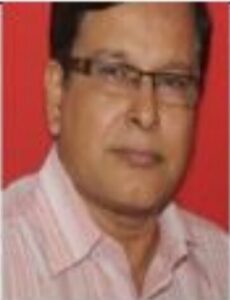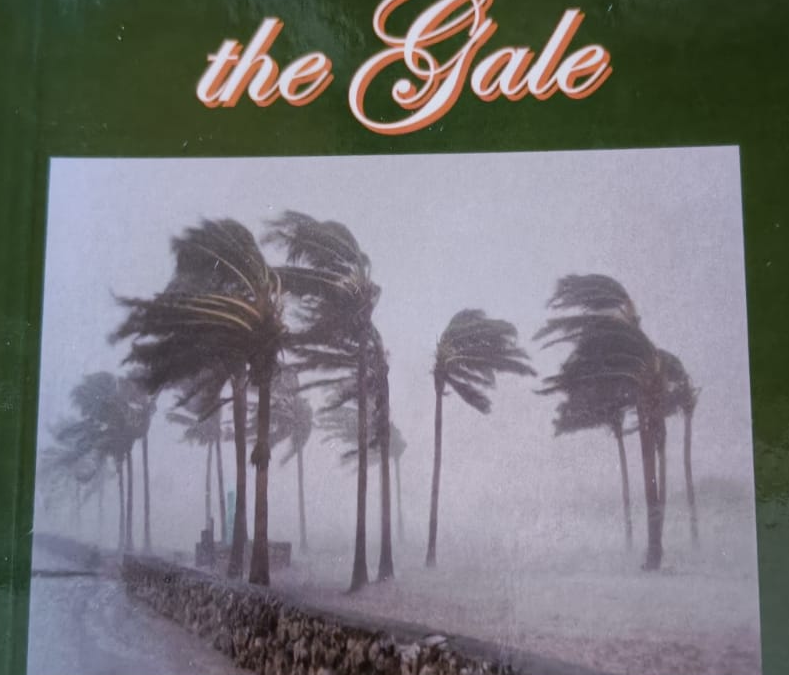Ranadhir Mukhopadhyay
Platonic Imprint describes a lonely love. Rapid and perfect recovery from a near-fatal injury in the lower spine of a beautiful young daughter in New York led the entire family in Bangalore into a quagmire of questions, distrust, and infidelity before pure and unflinching love offered the answer. The daughter’s ‘mission-truth’ later traces the fact surprisingly to a remote village in rural Bengal. Does the story also open an area of research on how a single event could impact two people emotionally in such a different manner?
Part 5
Meanwhile, Tiya had her second major operation in fifteen days. A few days later in hospital her parents Ahana and Siddhartha found Tiya much better, responding well to the medication, and even spoke to them although faintly. The junior doctors attending her were all at surprise by this express development and rapid recovery from such an intense surgery.
Tiya would be released before this weekend from the hospital. It is now only the 27th day since the fatal accident took place, and amazingly she can turn her sides on the bed on her own.
Seeing the good progress of Tiya, Mrs Batiza had left yesterday for her hometown Acapulco, located far south of the capital Mexico City. Cleta, Manisha and Alpesh however, continued to visit Tiya during visiting hours and also spent time with the parent-couple whenever they were free.
However, Tiya’s release took a little more time. On the 38th day of her admission, the duty nurse informed that before the release of Tiya, Dr. Wisconsin would like to brief the parents of the patient tomorrow at eleven in the morning. This info is also taken as a positive sign of the Patient’s improving health condition. All were in a jovial mood. It is time to celebrate. The discussion then moved around to whether it would be advisable to take Tiya back to Bangalore for home rest or stay back in New York for follow-up treatment. Dr. Wisconsin is the ultimate person to decide on this.
The next day sharp at 11 am Siddhartha and Ahana entered the chamber of Dr. Wisconsin. After regular pleasantries, and jovial enquiries about the patient’s health, the Doctor was excited to tell them something.
‘You see Tiya’s case is once in a million, and probably the first for me and this hospital. The intensity of injury at her L5 and S1 junction was horrendous.’
The doctor took grasp and continued- ‘the fall was devastated. The injury could have left her crippled by the waist for the rest of her life. The operation was difficult because there could as well be several side effects of such an operation in terms of libido deficiency and future sexual activity. Tiya is young, unmarried and has not tasted the best times of her life. That was an additional challenge.’
Ahana looked at the doctor with folded palms, the silent India-style Namaskar is an expression of gratitude.
The doctor continued- ‘But some miracle happened in between. I did the operation to the best of my ability. All went perfect, but the fear in me grew- the fear of her incomplete recovery, and also of sexual deformity were very much in my mind. Without the knowledge of many hospital staff, I was collecting the hour-to-hour progress report of Tiya. But I could not believe it when I got the first news that she has started faintly twisting her legs on the 19th day. It was unbelievable.
‘Today it is her 38th day and she is seminally fit to leave the hospital. It cannot be possible without some divine help. I am a doctor and a scientist as well, but somewhere down there I know getting reasonably fit within five weeks from such intense injury is genuinely near-impossible in medical science. There must be something else.’
A pin-drop silence covered the chamber. After a long pause, the doctor got up from his seat and started strolling in the room restlessly. The parents have mixed faces. On one side they were joyful to know the fact that their daughter is recovering unbelievably fast, they would not mind if such recovery is aided by divine power, but on the other, they could not guess why the doctor was so restless.
Taking a fresh breath of air Dr. Wisconsin slowly returned to his composure and returned to his seat. He looked much focused now. He started speaking slowly with a tone of finality- ‘you must be surprised why I collected blood and swab samples of yours. In fact, instead of on Tiya, my focus during the last few days was on testing the blood and gene characteristics of you two.’
‘Is it? Both Siddhartha and Ahana asked almost at the same time. ‘Was that important so much?’
After taking a pause, the doctor nodded- ‘yes. Truly the reason for the rapid recovery of Tiya lies in the deviation of her genetic structure from yours.’
‘You know, the doctor continued, ‘Tiya’s blood group and gene structure do not effortlessly match with that of you both. For example, Tiya’s blood group is O, but you have A and B. Additionally, several elements in her blood strikingly differ from you both. It happens sometimes, although very rarely. Parents with blood groups ‘A’ and ‘B’, like yours, mating to produce a child having ‘O’ blood group is not abnormal or impossible, but certainly uncommon.’ The doctor took a pause.
Siddhartha nodded silently.
‘Moreover, Tiya’s genetic structure and gene patterns do not conclusively match with you two, particularly with her father. Do you know how Genes are normally transferred to progeny?’
‘We must admit that it is not known to us with clarity’- Ahana told.
‘For the birth of a child, father and mother provide genes equally. One-half of a baby’s genes come from its father and another half from its mother. The baby’s parents, in turn, inherited half each of their genes from each their parents. One-quarter of each person’s genes, therefore, come from the grandparents.’
Dr. Wisconsin connects his laptop to the big Led-screen in the room and starts explaining the knotty-gritty of DNA, genes, and chromosome in a language that can be understood even by a layman.
‘We must start from the beginning. Nature is completely astounding when it comes to reproduction. Humans, like every other organism, are made up of cells. We all start as just one cell at the time of fertilization. As the single cell divides, all genes are copied so that every new cell possesses a full set of genetic material: the genome. The mechanism of copying the genome is quite significant given the fact that the human body contains approximately 10 trillion cells. Could you follow me?’ – The doctor wanted to take the couple along.
‘Now about gene’- doctor continued- ‘as you know Amino acids are building blocks of proteins in our body. These proteins control how our body would grow and work, such as the keratin in hair, pigments that give eye colour and enzymes digesting food in the stomach.’
Seeing the parents completely engrossed, Dr. Wisconsin sustained- ‘the human genome contains around 20,687 protein-coding genes. For ease of storage and access, the genes are packaged up into 46 parcels called chromosomes. We inherit one set of 23 chromosomes from our mother and another set of 23 chromosomes from our father.’
‘As Gene controls human traits, can two siblings have different DNA?’ Ahana started taking a serious interest in the DNA paradigm?’
‘Yes, it is possible for two siblings to get pretty different ancestry results from a DNA test, even when they share the same parents. DNA isn’t passed down from generation to generation in a single block. Not every child gets the same 50% of mom’s DNA and 50% of dad’s DNA.’
‘Can a baby’s genetic structure be different than its parent’s?’ Siddhartha tried to pre-empt the doctor.
‘In short, the answer is ‘no’. However, there are multiple ways our bodies can ensure that we have a unique set of DNA that differs from our parents. A cell reproduces by copying its genetic information and then splitting in half, forming two individual cells. Occasionally, an alteration occurs in this process, causing a genetic change. We call it a mutation.
‘Sperm and egg cells are known as ‘germ’ cells. The rest of the other cells in the body is called ‘somatic’ (not main but ‘relating to the body’). Any change happening to a person’s somatic cells may not pass it on to their children. For example, skin cancer caused by damage from UV radiation, or results from exposure to environmental factors such as smoking, sunlight or radiation, is unlikely to be transmitted to children. However, if the gene change occurs in germ cells, that person’s children have a chance of inheriting the altered gene’- The doctor concluded.
‘Thank you doctor for telling us how we shape up into what we are. I must also admit that we had never explored the science behind the making of us in such detail’ Siddhartha said
‘But then how you are relating this to Tiya’s condition?’ Ahana enquired.
‘Hhmmm! That’s a million-dollar question.’ The doctor paused for a long. ‘And I do not have a clear answer, as yet, because the process involved here, if my guess is correct, happens once in a million- the doctor left the parents to guess.
After a hiatus, Dr. Wisconsin continued- ‘as I mentioned earlier Tiya’s blood group, her DNA structure and genome do not ‘completely’ match with that of you two. The entire analyses point toward a chance or possibility of germ-cell-gene mutation somewhere down the line. But how it was accomplished I do not have complete clue.’
‘Gene mutation? Means our gene got changed or altered? How?’ Siddhartha was curious.
‘Not yours, but of your daughter. Exactly I do not have an answer- how? Normally, as I have told six persons are largely responsible for the making of a child- the child’s parents and four grandparents. Our data, however, indicate the influence of a seventh person in Tiya’s case. The genetic material of that person appears to have played a considerable role in the quick recovery of Tiya, which otherwise might have taken several months, if not years.’
The doctor continued- ‘the unexplained influence of the possible seventh person in mutating genes of one of the parents appears to have worked positively in the case of Tiya. I have not seen this sort of phenomenon in my entire career.’
‘Does that mean I have parents different than whom I know?’
Hearing a new voice in the room, in a flash, all looked towards the door. Tiya was there in her wheelchair with a sister helping her.
(…to be continued)
About the Author :

Dr. Ranadhir Mukhopadhyay is a Marine Geoscientist. He had retired from NIO, Goa as a Deputy Director. He now lives at Goa.

